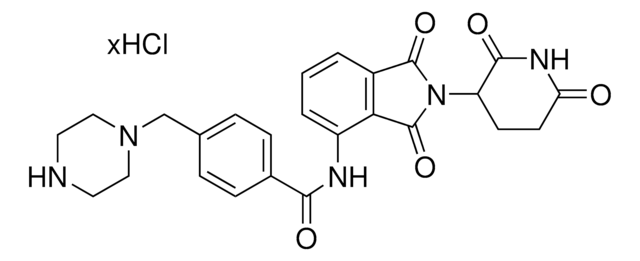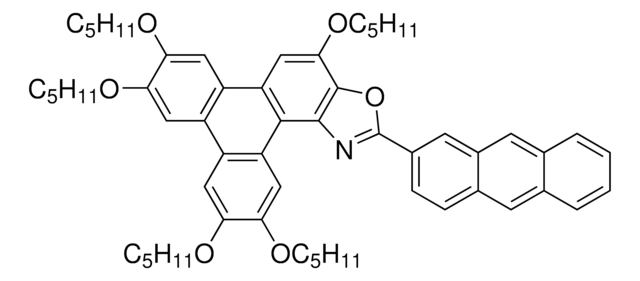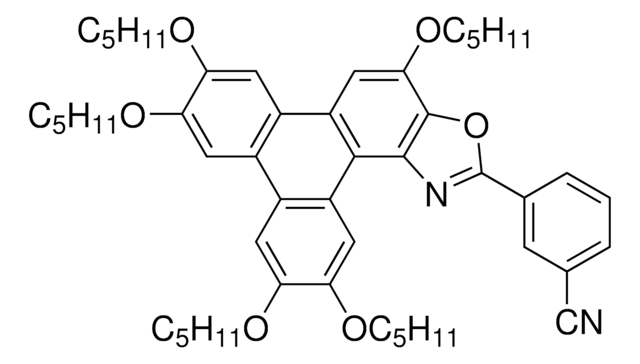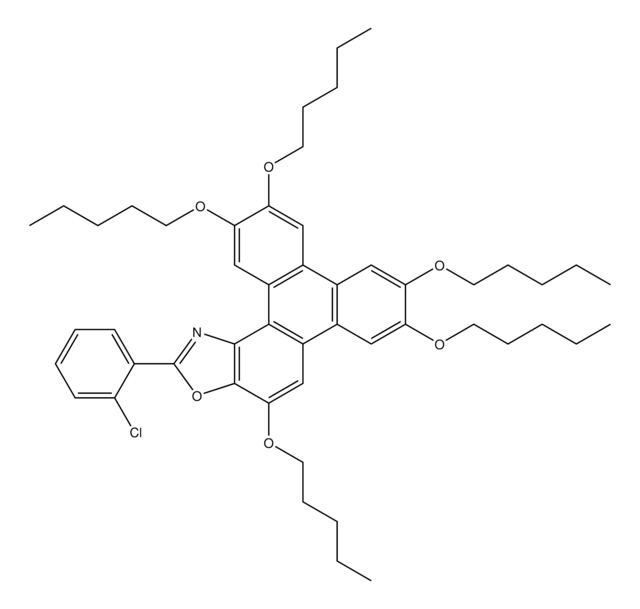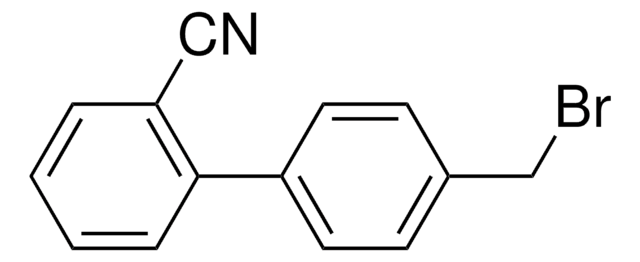922951
TpOx-Ph-p-CN
Synonym(s):
4-(2,3,6,11,12-Pentakis(pentyloxy)triphenyleno[1,2-d]oxazol-8-yl)benzonitrile
About This Item
Recommended Products
description
Polymorph crystalline phase: Solid, Discotic Liquid Crystal, Isotropic
Quality Level
transition temp
crystalline phase to discotic phase <-22 °C (heating)
discotic phase to isotropic phase -275 °C (heating)
solubility
soluble (THF > 1 mg/mL, MeCN < 0.23 mg / mL, DCM > 1 mg /mL)
λmax
272 nm in ethyl acetate
εmax
103,000 M-1cm-1 in ethyl acetate
fluorescence
λem 558 nm, quantum yield 0.32 (pSS (nm) = 286, Fluorescence Lifetime (ns) = 5.55)
storage temp.
−20°C
General description
Application
- Fluorescent dye staining
- Organic semiconductor for organic electronic and photonic applications
- Multi-photon microscopy
Storage and Stability
Storage Class Code
11 - Combustible Solids
WGK
WGK 3
Choose from one of the most recent versions:
Certificates of Analysis (COA)
Sorry, we don't have COAs for this product available online at this time.
If you need assistance, please contact Customer Support.
Already Own This Product?
Find documentation for the products that you have recently purchased in the Document Library.
Articles
Here we introduce the Triphenoxazoles, a new class of organic electron donor-acceptor materials that can both be manipulated to change the electronic properties of the donor and acceptor with the consequent modulation of their HOMO/LUMO and properties, such as Stokes shift and (photo)conductivity, whilst at the same time displaying liquid crystallinity and functional groups for further chemical modification.
Photovoltaic materials convert light into energy such as electricity. In contrast, display technology converts energy into visible light. A variety of display technologies and devices are reviewed.
Our team of scientists has experience in all areas of research including Life Science, Material Science, Chemical Synthesis, Chromatography, Analytical and many others.
Contact Technical Service